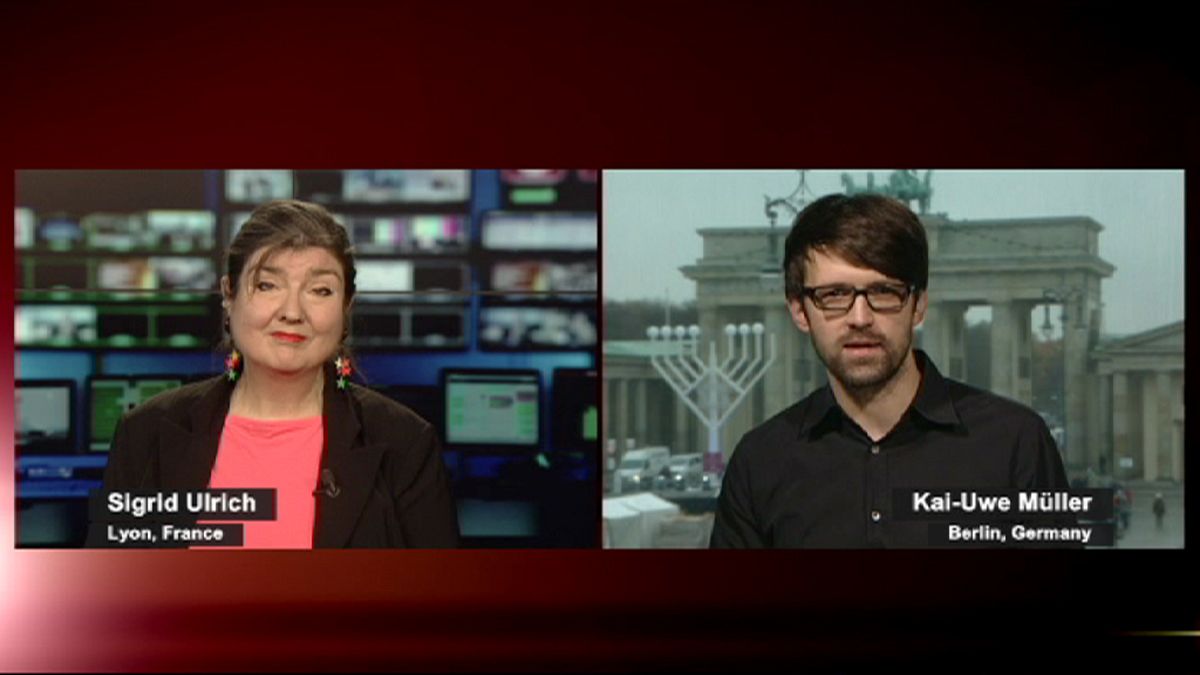Two months after winning an absolute majority in elections, the outcome of a final 17-hour round of negotiating has finally allowed Christian Democrat Chancellor Angela Merkel to sign a programme for her next four years in government banded together with the Social Democrats.
It includes an 8.50 euro national hourly minimum wage from 2015 under conditions, and from 2017 throughout Germany.
Today, some 5.5 million people in Germany are paid less than 8.50 euros per hour. The measure is supposed to wean the working poor off supplementary social aid payments. A limit has been set on temporary workers’ contracts; after 18 months they have to become fixed jobs, and they must be paid the same as a permanent employee after nine months in the same job.
Companies quoted on the stock exchange that have a works council will have to have at least three out of ten seats on their non-executive boards filled by women.
Full pensions for people who have worked for 45 years can now start at age 63 instead of 67, although conditions may apply in some cases.
In keeping with conservative dogma, taxes will not be raised, but the Grand Coalition agreement commits to investing 23 billion euros by 2017, of which six billion is to go into schools and creches, and into research and infrastructure.
Investment in transport infrastructure is to be substantially increased, to be funded by expanding a toll on trucks and introducing a motorway toll on foreign-registered cars as of next year – though this is controversial at a European level.
Power generated from renewable sources will be increased from the 25 percent requirement today to between 40 and 45 percent by 2025 and 55-60 percent by 2035.
The Social Democratic Party (SPD) successfully negotiated providing for double nationality. The children of foreign parents born in Germany who grew up in Germany may now have two passports. This will apply notably to the Turkish community – Germany’s biggest immigrant group, numbering some three million people.
Kai-Uwe Müller is a market specialist from the German Institute of Economic Research (DIW) in Berlin. Euronews asked him what he made of the deal.
Kai-Uwe Müller:
Finally – with the coalition – a decision was taken regarding the minimum wage. I welcome this. The debate about this minimum wage took forever, it was so tiring and it led to great insecurity among the population. Although the result of the debate, 8,50 Euro per hour, I am not so happy about.
Sigrid Ulrich, euronews:
The minimum wage was one of the most difficult topics for the coalition partners to agree on. Some people argue it won’t help those who earn very little and it will mean job losses. What effect do you think it will have on salaries, unemployment and economic growth?
Kai-Uwe Müller:
The could be several different effects.The minimum wage will bring a higher salary to those who keep their jobs. That is a given. Thus the minimum wage will lead to more social justice. But a minimum wage of 8,50 Euros per hour could lead to job losses. So it may actually be detrimental to some of the people, whom it originally should help. Especially in East Germany, for certain professions, like the service industry, hotels and restaurant jobs, but also in agriculture, farmers may suffer.
euronews:
Can you give any figures?
Kai-Uwe Müller:
According to our estimates, we are looking at job losses in the sphere of 100,000 to half a million. But an exact number is difficult to say.
euronews:
Some experts argue the German job market is successful because of its flexibility. This flexibility could disappear, when politicians decide on salaries, even the unions agree on that. 8.50 Euros an hour – is a politically symbolic number, and now not even the planned expert commission can change that. Was it wise for politicians to set this rate in stone ?
Kai-Uwe Müller:
I think it would have been wiser to have moved more carefully. It may have been more reasonable to have started with around 7 Euros. This would have given us the opportunity to analyze possible consequences and then rather slowly increase the minimum wage.
euronews:
The SPD wants the minimum wage, the SPD will get it, is what Angela Merkel said. Did she want to show Germany’s critical neighbors, look here, we are doing something for our domestic demand?
Kai-Uwe Müller:
I think it is mainly a domestic problem, it is about social justice in Germany. This was the main motivation for the Social Democrats during their election campaign. That is why the figure of 8.50 has such great symbolic value. But whether Germans will be able to spend more because of the minimum wage, well economists are sceptical in this regard. In the end, people may not have a whole lot more money to spend.”
euronews:
Will the SPD members vote yes?
Kai-Uwe Müller:
To the coalition treaty, you mean? I think political pressure is strong. And some of the issues have actually been decided exactly along the lines of the SPD, some symbolic issues have been decided as they wanted – so yes, I am optimistic that there will be a yes-vote.”
